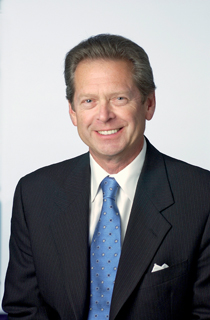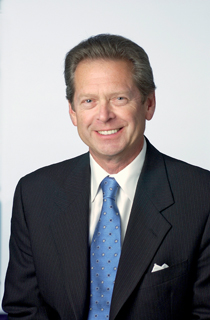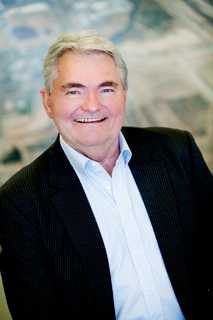

Diversity Corporation of the Year finalists 2012
ColoradoBiz Staff //July 1, 2012//

Solera National Bank
For Solera National Bank, diversity wasn’t an afterthought or a second thought. It was the whole point.
“It’s really the key fabric of everything we do,” President and CEO Douglas Crichfield says of Solera, Denver’s first and only Latino-, minority- and small business-focused, community-owned bank.
Solera’s commitment to diversity runs deep, from the bilingual tellers and customer service reps to its partnerships with minority organizations and businesses and its support of Hispanic and minority nonprofits.
“We’re not just reacting to some change in the marketplace,” Crichfield says. “We were founded specifically to serve the community, small businesses and consumers in a very caring and inclusive way.”
Co-founders Ron Montoya, James Perez Foster and 18 other organizers, including Crichfield and Chief Financial Officer Bob Fenton, set out to fill a void with Solera, catering to underserved consumers and small businesses, particularly those in the heavily Hispanic community around the bank’s Lakewood headquarters. That commitment is reflected in one of Solera’s slogans: “We embrace our community one individual, one family at a time.”
The bank’s founders wanted those individuals and families to have a stake in Solera, ensuring that the people backing the bank would also be banking there, Montoya says. They attracted more than 750 investors and $26 million in an initial public offering.
Solera’s success – despite opening its doors in 2007, just as the nation was sliding into recession – bears out the idea that it’s possible to both do good and do well, even when the economy is doing badly. The bank turned a profit in its third year and has been profitable for six of the last eight quarters, increasing earnings by 80 percent in 2011 over the year before.
“We’re actively reaching out to folks,” Crichfield says, noting that the bank maintains relationships with the Hispanic, Asian, Indian and Women’s chambers of commerce, among others. “And we appeal to larger companies that have diversity units or departments where they have a specific goal of reaching out to the community we serve.”
Solera’s community involvement includes everything from sponsoring fundraisers for a low-income health clinic to hosting Small Business Development Workshops; it supports organizations including Junior Achievement Summer Scholars, the Latin American Education Foundation and the Rocky Mountain Minority Supplier Development Council and its Business Opportunity Fair.
The bank’s community- and minority-centered approach has won fans across the state, including U.S. Sen. Michael Bennet, who invited Montoya to Washington in March to discuss supporting small-business development and job creation in the Latino community. Montoya, who chairs the Solera board, told the Senate Democratic Hispanic Task Force that small banks need regulatory flexibility to work with small businesses and community-based organizations and nonprofits to boost opportunities for job creation.
“We’re trying to be as focused as we can be on servicing and working in the Hispanic community,” Montoya told the committee. “They’re small businesses, small loans, and they do make a difference. Every small business, every nonprofit with access to capital will create new jobs.”
With that in mind, Solera is ramping up its U.S. Small Business Administration loan programs, and loan officers are calling potential customers to get the word out about a bank that is welcoming, respectful, inclusive – and eager to lend both money and a helping hand.
“We envision Solera being one of the premier independent community banks in Colorado,” Crichfield says. “We want to do that by giving exceptional service to people from all walks of life – and by giving back to the community.”
– Lisa Ryckman
{pagebreak}

Tom Gleason
Forest City/Mortenson Construction
Stapleton’s transformation from airport to mixed-use neighborhood has been nothing short of dramatic. “It’s one of the largest infill developments in the nation,” says Tom Gleason, vice president of public relations at Forest City Stapleton.
As master developer at Stapleton, Cleveland-based Forest City has a corporate directive for a diverse roster of contractors and suppliers, he adds. “We have as a company always believed in diversity,” says Gleason. “Here in Denver, we’re striving to meet the expectations of the community to create a full range of opportunities for companies across the spectrum.”
Denver-based Mortenson Construction, the Park Creek Metro District’s construction manager under Forest City, helps with that mission. “I’ve been here 11 years,” says Kerry O’Connell, Mortenson’s senior project manager at Stapleton. “We’ve been working with a lot of the same minority contractors for all 11 years.”
O’Connell says hiring diverse contractors isn’t easy in civil construction, because of its capital-intensive nature, but Mortenson brings in minority-owned businesses to work in infrastructure projects ranging from turn lanes and concrete projects to fencing and street-sweeping. “We generally get 20 to 25 percent minority participation,” says O’Connell, noting that businesses with diverse ownership are currently in high demand at such civic projects as FasTracks and the Union Station redevelopment.”It’s a pretty good number considering you don’t have a lot of big players.”
Last year, O’Connell ran an eight-night class covering project-estimating skills for a student body of more than 20 contractors, most of them minorities, culminating in “Bid Day” for a new left turn lane on Central Park Avenue. The winner actually won the contract for the project. “It was pretty good,” says O’Connell. “We still work with six or seven of them.”
Other educational initiatives have focused on junior high and high school students: Mortenson provided teachers for civil engineering classes organized by the Colorado Association of Black Professional Engineers and Scientists.
Mortenson also recruits local minority students from Montbello High School. One of them, Mercy Wright, now works in the office for Mortenson after the company helped pay for her tuition for college. “When we first met her, she had never seen a construction site,” says O’Connell. “We made her into a surveyor. That was over seven years ago. She’s been working for us ever since.”
– Eric Peterson
{pagebreak}

Xcel Energy
The Denver offices of Xcel Energy launched its diversity department in the early 1980s, back in the Public Service Co. of Colorado days, with one person. Now it’s a three-person office headed by Murugan Palani. Palani, manager of supplier diversity for Xcel’s Colorado operation, says the department’s growth has been complemented by the cultivation of a company-wide ethos. “Before we had one person who was a champion for diversity,” he says. “Now every single person in the supply chain is a champion.”
Nationwide, Xcel pushed $249 million out to diverse suppliers (meaning minority-, women-, and veteran-owned businesses) in 2011. “Whenever possible, we include a diverse contractor in every bid process,” says Palani. “We provide a seat at the table. We don’t have a quota system. They win the contract because they are the right company for the job.”
Palani’s office acts as “a single point of contact” for the entire bid process, he says, providing support for registration in Xcel’s supplier databases and other guidance and advice along the way. “We pretty much walk them through the whole process,” says Palani. “It’s a world of difference for small, diverse companies.”
One such company is Littleton-based civil engineering firm J.F. Sato & Associates: “A couple of years ago, we were their internal advocate,” says Palani. “Now they’re one of the tiered contractors that we go to.” It almost goes without saying that having an anchor client like Xcel can be a huge difference-maker for a small business.
Xcel has managed to bring in numerous construction businesses with diverse ownership. “Generally, the construction industry is a hard business to get diverse businesses into,” says Palani. “We’re opening the door for a lot of companies.”
On deck is a similar push to bring in small local businesses across the state. “In the future, we want to develop a program to maximize opportunities for local businesses,” says Palani, whether they’re in Greeley, Pueblo, or any other point on Xcel’s Centennial State footprint. “We’re trying to provide opportunities for suppliers who are our customers. The more we can help our customers, the better off we are.
“Xcel Energy has a very strong tradition supporting diverse suppliers in the community, helping maximize their opportunities and mentoring them as they grow,” says Palani. “We take a great deal of pride in that.”
– Eric Peterson
























